Hyundai i30 vs Toyota Yaris Cross - Differences and prices compared
Compare performance (140 HP vs 130 HP), boot space and price (24000 £ vs 23700 £ ) at a glance. Find out which car is the better choice for you – Hyundai i30 or Toyota Yaris Cross?
Costs and Efficiency:
Looking at overall running costs, both models reveal some interesting differences in everyday economy.
Toyota Yaris Cross has a barely noticeable advantage in terms of price – it starts at 23700 £ , while the Hyundai i30 costs 24000 £ . That’s a price difference of around 300 £.
Fuel consumption also shows a difference: Toyota Yaris Cross manages with 4.50 L and is therefore distinct more efficient than the Hyundai i30 with 5.70 L. The difference is about 1.20 L per 100 km.
Engine and Performance:
Power, torque and acceleration are the classic benchmarks for car enthusiasts – and here, some clear differences start to show.
When it comes to engine power, the Hyundai i30 has a minimal edge – offering 140 HP compared to 130 HP. That’s roughly 10 HP more horsepower.
In acceleration from 0 to 100 km/h, the Hyundai i30 is a bit quicker – completing the sprint in 9.60 s, while the Toyota Yaris Cross takes 10.70 s. That’s about 1.10 s faster.
In terms of top speed, the Hyundai i30 performs slightly better – reaching 197 km/h, while the Toyota Yaris Cross tops out at 170 km/h. The difference is around 27 km/h.
Space and Everyday Use:
Cabin size, boot volume and payload all play a role in everyday practicality. Here, comfort and flexibility make the difference.
Both vehicles offer seating for 5 people.
In curb weight, Toyota Yaris Cross is slight lighter – 1180 kg compared to 1291 kg. The difference is around 111 kg.
In terms of boot space, the Toyota Yaris Cross offers hardly perceptible more room – 397 L compared to 395 L. That’s a difference of about 2 L.
In maximum load capacity, the Hyundai i30 performs a bit better – up to 1301 L, which is about 204 L more than the Toyota Yaris Cross.
When it comes to payload, Toyota Yaris Cross barely noticeable takes the win – 510 kg compared to 509 kg. That’s a difference of about 1 kg.
Who wins the race in the data check?
The Hyundai i30 comes out ahead with a more balanced overall result in the objective data comparison.
This result only shows which model scores more points on paper – not which of the two cars feels right for you.
Costs and Consumption
View detailed analysis
Engine and Performance
View detailed analysis
Dimensions and Body
View detailed analysis
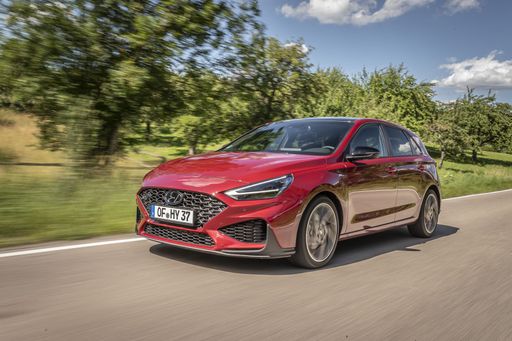
Hyundai i30
Hyundai i30
The Hyundai i30 proves that sensible can also be stylish, offering a confident driving character wrapped in neat, modern design. It serves up a roomy, well-equipped cabin and composed ride that make everyday motoring feel like a clever purchase rather than a compromise.
details
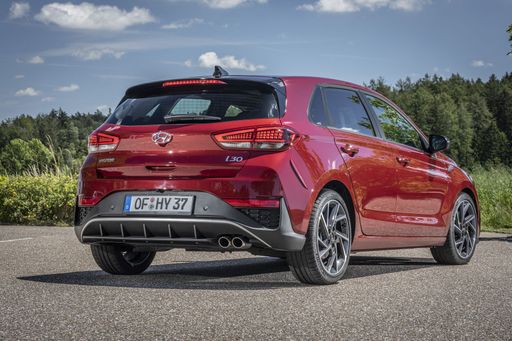
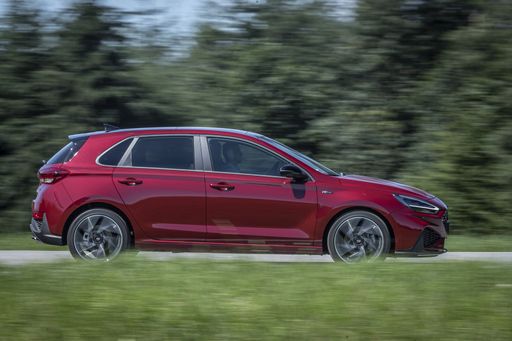
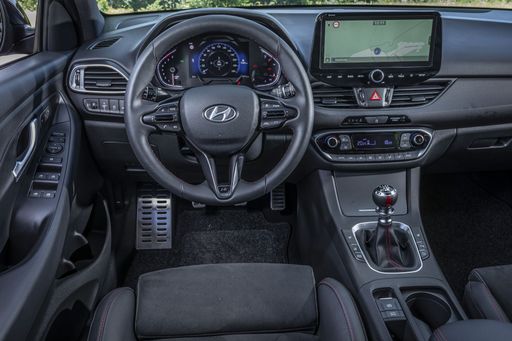
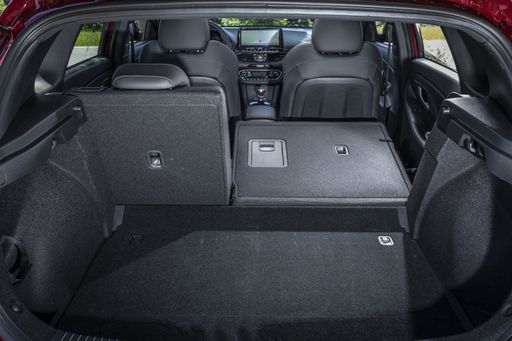
Toyota Yaris Cross
The Toyota Yaris Cross takes the jaunty personality of the Yaris and gives it a taller stance and a bit more practicality, so you get city-friendly agility with added SUV presence. It’s easy to live with, economical on the daily grind, and smartly packaged — a sensible pick for buyers who want fuss-free transport with a touch of character.
details






Costs and Consumption |
|
|---|---|
|
Price
24000 - 29300 £
|
Price
23700 - 34300 £
|
|
Consumption L/100km
5.7 - 6 L
|
Consumption L/100km
4.5 - 4.8 L
|
|
Consumption kWh/100km
-
|
Consumption kWh/100km
-
|
|
Electric Range
-
|
Electric Range
-
|
|
Battery Capacity
-
|
Battery Capacity
-
|
|
co2
130 - 136 g/km
|
co2
101 - 108 g/km
|
|
Fuel tank capacity
50 L
|
Fuel tank capacity
36 L
|
Dimensions and Body |
|
|---|---|
|
Body Type
Hatchback
|
Body Type
SUV
|
|
Seats
5
|
Seats
5
|
|
Doors
5
|
Doors
5
|
|
Curb weight
1291 - 1407 kg
|
Curb weight
1180 - 1290 kg
|
|
Trunk capacity
395 L
|
Trunk capacity
320 - 397 L
|
|
Length
4340 mm
|
Length
4180 mm
|
|
Width
1795 mm
|
Width
1765 mm
|
|
Height
1455 mm
|
Height
1595 mm
|
|
Max trunk capacity
1301 L
|
Max trunk capacity
1097 L
|
|
Payload
463 - 509 kg
|
Payload
485 - 510 kg
|
Engine and Performance |
|
|---|---|
|
Engine Type
Petrol, Petrol MHEV
|
Engine Type
Full Hybrid
|
|
Transmission
Manuel, Automatic
|
Transmission
Automatic
|
|
Transmission Detail
Manual Gearbox, Dual-Clutch Automatic
|
Transmission Detail
CVT
|
|
Drive Type
Front-Wheel Drive
|
Drive Type
Front-Wheel Drive, All-Wheel Drive
|
|
Power HP
100 - 140 HP
|
Power HP
116 - 130 HP
|
|
Acceleration 0-100km/h
9.6 - 13.1 s
|
Acceleration 0-100km/h
10.7 - 11.3 s
|
|
Max Speed
178 - 197 km/h
|
Max Speed
170 km/h
|
|
Torque
172 - 253 Nm
|
Torque
-
|
|
Number of Cylinders
3 - 4
|
Number of Cylinders
3
|
|
Power kW
74 - 103 kW
|
Power kW
85 - 96 kW
|
|
Engine capacity
998 - 1482 cm3
|
Engine capacity
1490 cm3
|
General |
|
|---|---|
|
Model Year
2024
|
Model Year
2024 - 2025
|
|
CO2 Efficiency Class
D, E
|
CO2 Efficiency Class
C
|
|
Brand
Hyundai
|
Brand
Toyota
|
What drive types are available for the Hyundai i30?
Available configurations include Front-Wheel Drive.




